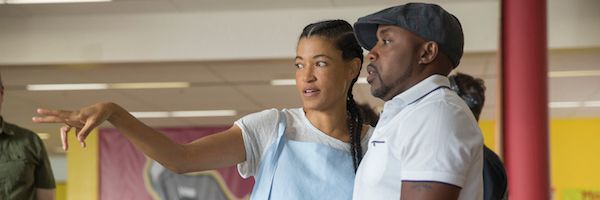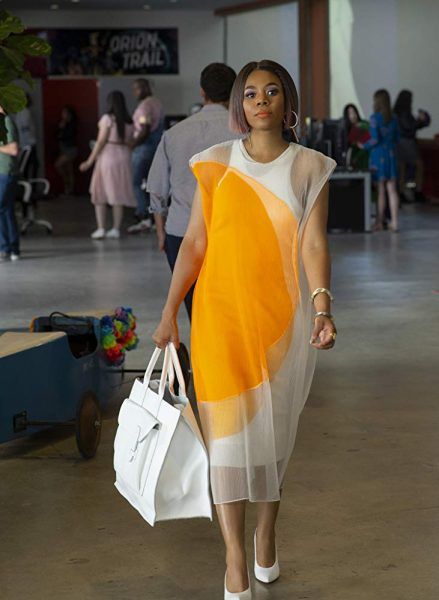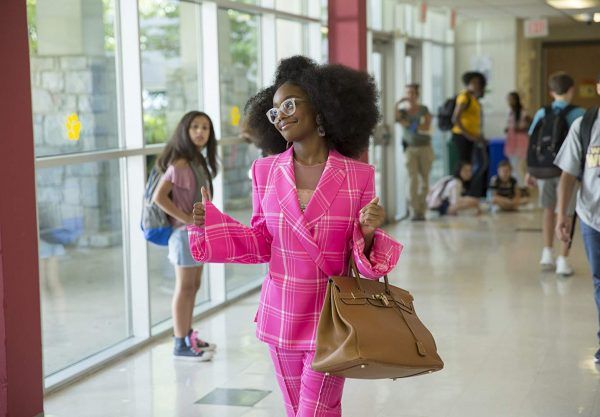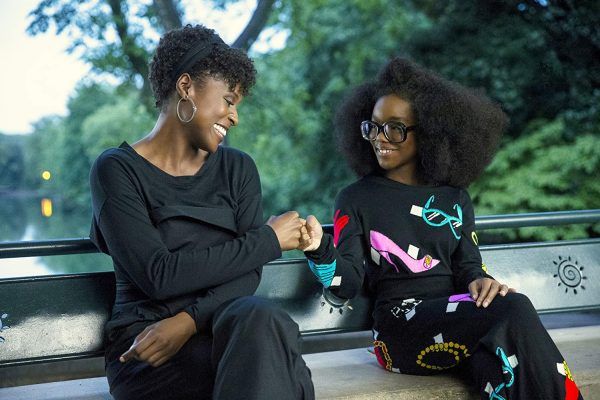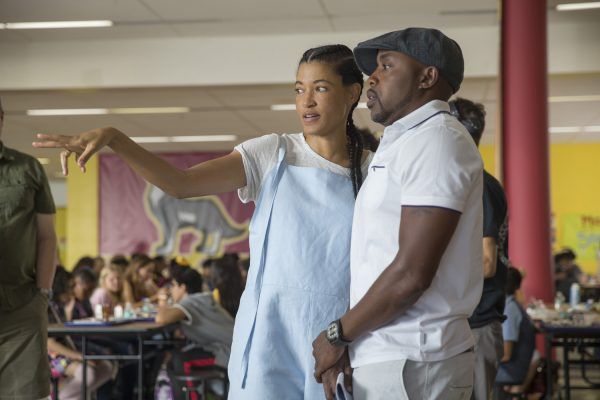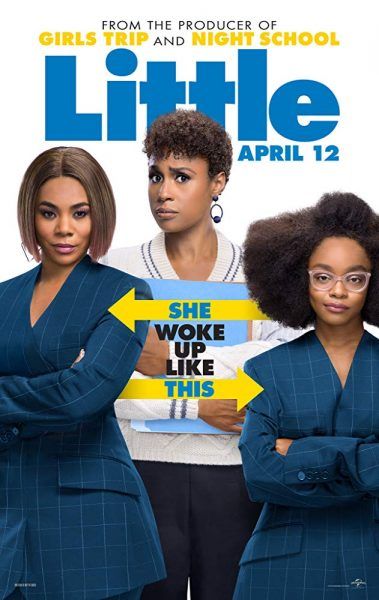From director Tina Gordon and producer Will Packer, the comedy Little follows highly successful tech mogul Jordan Sanders (Regina Hall), who lives the glamorous life, but is a nightmare boss with a management style that sends people running. One morning, Jordan wakes up and finds that she’s suddenly trapped in the awkward 13-year-old version of herself (played to perfection by Marsai Martin, who also came up with the idea and executive produced the film), and she realizes that she must rely on her long-suffering assistant April (Issa Rae) until she can figure out how to return to her adult self.
During this 1-on-1 phone interview with Collider, Will Packer talked about being one of the most prolific and successful producers in the industry, with his Will Packer Productions, how he’s still able to put his degree in electrical engineering to use, learning to enjoy his success, what sold him on the original pitch 10-year-old Black-ish star Marsai Martin brought to him, why body swap comedies work so well, gauging the balance between humor that appeals to teens and adults, and his favorite moments in the film. He also talked about working with Issa Rae and Lakeith Stanfield on the New York love story The Photograph, whether we’ll ever see a Girls Trip sequel, and his support for young filmmakers.
Collider: How does it feel to be one of the most prolific and successful producers in the industry? You create top-tier entertainment to celebrate Black characters, lives and experiences, and yet you graduated college with a degree in electrical engineering. Could you ever have imagined that you’d go from there to here?
WILL PACKER: I probably could have imagined it, just knowing me. I knew engineering wasn’t the thing that I would ultimately be doing with my life. I didn’t know what I would do, but I didn’t think it would be engineering. Funny enough, though, I actually still use that skill set of thinking analytically and problem-solving, even today, in what is obviously a very creative industry. So, I think having that degree actually helps to give me a leg up with some of my peers.
Knowing that your movies have grossed more than a billion dollars worldwide, is that something you’re ever able to actually sit back and enjoy, or do you always feel like you’re too focused on the next thing?
PACKER: That’s valid. I probably should figure out how to enjoy it a little bit more. I’m very driven, and I feel like I still have so much left to do and so much more I want to accomplish, but I do take time to realize that I’ve had an amazing career and have done things that a lot of people have not been able to accomplish. I’m very fortunate and blessed to have a strong team around me, so I have to acknowledge that. It’s something that I have to work on myself, personally, just to take some time and allow myself to acknowledge what I’ve done, take a beat, breathe it in, and then go on to the next one. I’m so busy sometimes, working on that next thing and thinking about the next thing. I’m always onto the next one, but I’m very proud of what we’ve been able to do, to date.
When Kenya Barris sent this kid, Marsai Martin, and her parents to you with the idea for Little, what was your reaction? What sold you, not only the concept, but on her?
PACKER: You know what? It was so well thought out. Kenya brought in Marsai, and I hear a lot of pitches, in various forms of completion and thoroughness. Most of them probably aren’t very good, if I’m being honest. This was not just a good pitch and a good idea, but it was very well thought out. Marsai came in, and she was acting out scenes with dialogue that she had practiced and thought about. She was very well prepared, and it was clearly not something that was a whimsical thing for her. She didn’t wake up and say, “Let’s make a movie about this.” She had that initial thought, and then she had enough clarity and focus and vision to really hone what the story and arc should be. It helped, when we went into development, that we really had a very clean narrative to work from.
Did any of the scenes that she acted out for you, in that pitch meeting, make it into the finished film, or were they just things she did for that meeting?
PACKER: Yeah, they did. I remember the scene at the restaurant, where she’s ordering the drink. That was one of the scenes in the initial pitch.
Body swap comedies have been around for as long as I can remember, but this one definitely has an all-new perspective to it. Why do you think this type of story has lasted as long as it has? Why do you think they work, no matter the age, race, culture, or profession that you’re exploring?
PACKER: Because there’s a fun, whimsical, wish fulfillment quality to these kinds of films. Who hasn’t thought about, “Boy, if I could be . . .,” as a kid, or “If I could be a kid again,” as an adult? What kid doesn’t say, “I wish I was old enough to do . . .,” insert whatever it is that they aren’t allowed to do? There’s a consistent wish fulfillment theme, that no matter who is switching bodies, it works when you do it well. And this is a type of fun, escapist entertainment that, when theatrical movies are doing what they’re supposed to do, they’re the best at.
It seems as though one of the biggest challenges with this film would be making sure it appeals to a teen and an adult audience, and has humor that both can identify with and find funny, but without having it be too adult, or too young. How did you gauge that balance?
PACKER: Yeah, that was such an important conversation, getting the tone right, because we wanted to make sure that this was a movie that had a dual entry point. We wanted parents to say, “Oh, this is a fun movie that I would enjoy, and I want to take my kids to.” Marsai was very important with this. From a tonal standpoint, we were edgy enough, so that it felt like it would work with today’s teenager. A 13-year-old today has a very different sensibility than a 13-year-old, when I was that age, so PG-13 has a very different level of self-awareness, a very different awareness of the world, and a very different exposure level to the world. For me, I wanted to make sure that we had something that didn’t feel too soft, and didn’t feel like an after school special, because I knew that wouldn’t resonate with teens of today. I have teens at home. I know the types of content that they like and that resonates with them, so I wanted it to be real enough and organic enough and edgy enough, to make my teen crowd say, “I wanna go see that. That looks cool.” But also, of course, we needed it to be appropriate and respectful. That was a part of the development process that Marsai, who was very, very instrumental because she is that demographic. She has a very, very good sense of what’s gonna work with her audience and what’s just gonna feel corny, and we did not wanna do the latter. We definitely wanted this to feel like a movie that had enough edge that it would resonate with both audiences, parents and kids alike.
There are so many fun and memorable moments in this, from big sequences, like the duet between Issa and Marsai, to just some off-handed, really funny lines of dialogue. Do you have your own favorite moment in the film?
PACKER: Oh, I’ve got a couple. I love the talent show moment. Winchella is what they call it in the movie. I love that performance piece, at the end. I really enjoy the sequence with Marsai’s character, Little Jordan, and April, Issa’s character, when April first discovers Little Jordan, all the way through when the child services worker shows up. I just think that shows what Marsai and Issa do really well. A lot of those lines were fun improvised lines from Issa, and Marsai plays very well off of her. I like all of the stuff where we really underscore Marsai being this grown woman trapped in her teenaged body.
You’re working with Issa Rae again, along with Lakeith Stanfield and Chelsea Peretti for The Photograph. What’s that film about, and what most excites you about that project and working with that cast?
PACKER: So, The Photograph is a love story. It’s set in New York, and it’s a multi-generational love story, written and directed by Stella Meghie, who’s a very talented young black female director, so I’m very excited about giving her this platform. Issa is at a very interesting place because she represents that 30-something female of color, who is very self-aware of who she is and what her skill set is, and doesn’t mind showing her flaws and weaknesses. She’s super funny. She’s got a very relatable factor that audiences – for her TV show, and then hopefully with Little and The Photograph – are drawn to. She has this “what you see is what you get” stripped down, natural quality about her. And then, Lakeith is somebody that I’ve wanted to work with for awhile. He’s just an amazing artist. And I think the combination of the two of them – they have amazing chemistry – is gonna create a love story that will be different than any that we’ve seen in the marketplace, in awhile.
You also worked with Regina Hall on Girls Trip. What are the chances that we’ll ever get a sequel to Girls Trip? Have you put any serious thought into that?
PACKER: Yeah, of course! Absolutely! I hope that we do. It’s funny, I had dinner with Tiffany Haddish last night, and we talked about it. I think it’s about timing, and about having that right idea. You have to hone in on that perfect idea because when you have a movie that works as well as the original did, you wanna do it right, and so do they. Everybody’s on the same page – the actors, myself, Malcolm [D. Lee], the director, and the writers. If we’re gonna do it, we’ve gotta do it right, so there’s a lot of thinking going into what the right version is. The other thing is that it’s about timing, in terms of availability. This cast didn’t slow down, after the original. They all got a lot busier.
Because you work with young directors fairly frequently, do you do anything to help the filmmakers you work with to find the confidence in their own vision, in order to tell the story that they want to tell?
PACKER: My job, as a producer, is to make sure that I’m supporting my directors, in whatever way that they need. It’s different with somebody who’s only done a film or two, versus somebody who’s done 20. They still need support and they still need to feel like they have got somebody on the producorial side that has their back and is helping them to execute their vision. Some just need different types of support. It’s really different, with each film. But by and large, what I’m trying to do is make sure that my helmers feel supported and feel like they have the resources that they need to execute the vision that we have come to a shared agreement on.
Little is now playing in theaters.

